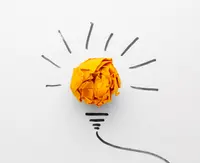
Real-Life Applications of Series
Real-life examples where the concept of series is involved are:
Application 1: Financial Forecasting
Series are extensively used in financial forecasting and analysis. Time series data, which involves tracking data points over regular intervals, is employed to analyze trends, predict future values, and make informed financial decisions. By analyzing historical patterns and relationships within the series, financial analysts can forecast market trends, stock prices, or economic indicators, aiding in investment strategies and risk management.
Application 2: Stock Market Analysis
Series play a crucial role in analyzing stock market data and making investment decisions. Stock prices can be represented as series, where each data point represents the price of a particular stock over time. By analyzing the historical price series, investors can identify patterns, trends, or indicators that inform their buying or selling decisions.
Application 3: Scientific Research and Experimentation
Series are fundamental in scientific research and experimentation. Experimental data often involves a series of observations or measurements. Scientists analyze these series to identify patterns, relationships, or trends, allowing them to draw conclusions or formulate hypotheses. Series analysis enables researchers to detect anomalies, understand natural phenomena, and make scientific predictions.
Series Reasoning Resources
The resources mentioned below can help you with your series reasoning preparation.

1. Concepts
Understanding the essential concepts related to series is important. As you begin to comprehend the underlying principles, you develop a better insight into the type of questions you will encounter and the thought process required to solve them.
View More
2. Practice Questions
Practice questions related to series. The more you practice, the more likely you are to understand the topic thoroughly and improve your speed and accuracy.
View MoreFAQsFAQs
What is series in non-verbal reasoning?
A series in non-verbal reasoning refers to a sequence or pattern of elements that follow a specific rule or relationship. These elements can be numbers, letters, figures, or any other objects. The goal of series reasoning is to identify the underlying pattern or rule governing the series and use it to predict or determine the next element(s) in the sequence.
How important is the series topic in placement examinations?
Series topic carry low weightage in the non-verbal reasoning examinations.
Is series difficult to learn?
No, the series topic is not difficult to understand. Students must practice series questions on a daily basis to address the questions quickly and accurately.
What is the fastest and most effective way to learn the series topic?
To learn the series topic effectively, consider the following approaches:
Understand the basics
Memorize relevant formulas
Practice regularly
Learn shortcuts & tricks
Time yourself

